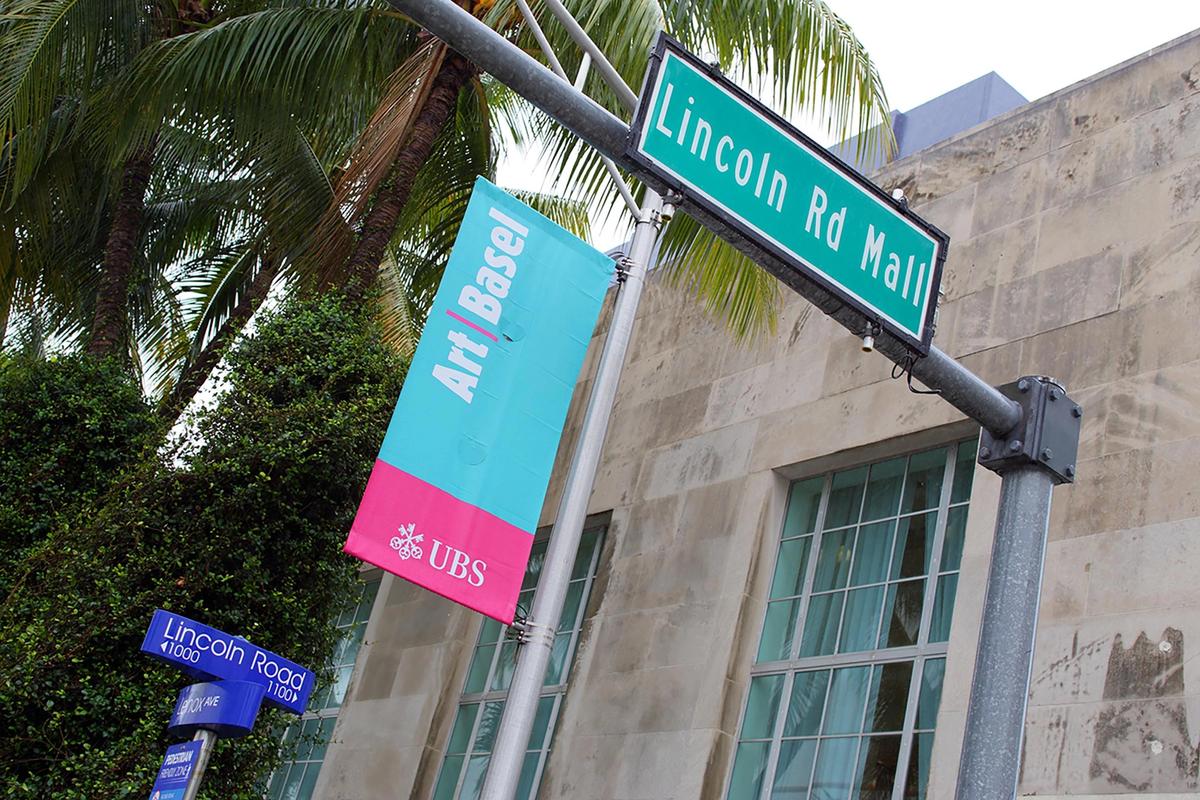With Art Basel Miami Beach and other Florida cultural events cancelled or downsized due to the coronavirus pandemic, the city of Miami Beach has launched an artist residency stimulus initiative to bolster the local art community and businesses that may take a financial hit from the absence of revenue generated by the fair.
As part of “Miami Beach Open House”, qualifying artists and nonprofit art organisations will be paired with privately owned vacant spaces, primarily in commercial districts. These spaces will serve as work spaces, studios and exhibition venues. The selected artists and organisations—about 75 in total—will also get a $2,500 stipend.
“We’re thinking that this is something that will provide a little vitality to a segment of our community, our economy, that has been racked by this Covid virus,” Miami Beach Mayor Dan Gelber said in a TV interview with the South Florida NBC6 News channel.
Art Basel has a $16m economic impact annually for the region and its artists and cultural institutions, according to the Miami Beach cultural affairs office. The fair estimates that it attracted about 81,000 attendees in 2019, with collectors from 70 countries flocking to Miami Beach for the show, which generates dozens of satellite fairs and countless gallery shows across the region.
Yet it is businesses that potentially stand to benefit from the city’s plan more than individual artists or cultural organisations. While the mayor’s office is encouraging participating property owners to offer their spaces without charge, it is ultimately up to the owners and occupants to negotiate the rental rate, meaning landlords could easily charge a flat fee equaling the stipend or more to use their vacant spaces.
The promise of negotiable real estate prospects may further the southward migratory trend already started by blue chip dealers like Pace and Acquavella, which open Palm Beach spaces in November. While commercial galleries would not qualify for the $2,500 stipend, “we have received inquiries from both local and internationally recognised galleries looking to have a presence on Miami Beach” since the initiative was announced earlier this week, says Brandi Reddick, the city’s cultural affairs manager.
She adds that the call for proposals is open to artists and organisations based outside of Florida– however, “preference will be given to those based in Miami-Dade County”.
Open House will concentrate on occupying vacancies in commercial corridors like 41st Street in North Beach and the high-traffic areas of Lincoln Road and Washington Avenue—both near the Miami Beach Convention Center, where Art Basel is typically hosted each December.
A curatorial advisory committee of three members from the City of Miami Beach Art in Public Places Committee (AiPP) and two representatives from the City of Miami Beach Cultural Arts Council will select the pool of artists and nonprofit cultural organisations for participating property owners to consider. Participants and property owners will work collaboratively on all other aspects of occupying the space.
Despite a long struggle controlling the virus, Florida has largely avoided full lockdown throughout the course of the pandemic, and many events will go ahead in December even if Art Basel will not. The Institute of Contemporary Art Miami and The Bass reopened last month, and the Perez Art Museum Miami announced today that it would reopen to the public on 7 November.
Meanwhile, the Miami Design District has planned to host ten days of arts programming, from 27 November to 6 December. The initiative will see the Design Miami fair return to its original home in the Moore Building, and feature live events, activations and shows by “major international galleries that regularly exhibit” at Art Basel in Miami Beach and have been offered temporary spaces within the 18-square-block neighbourhood. Later in the month, on 22 December, Superblue, an outgrowth of PaceX, will open its first experiential art centre.


